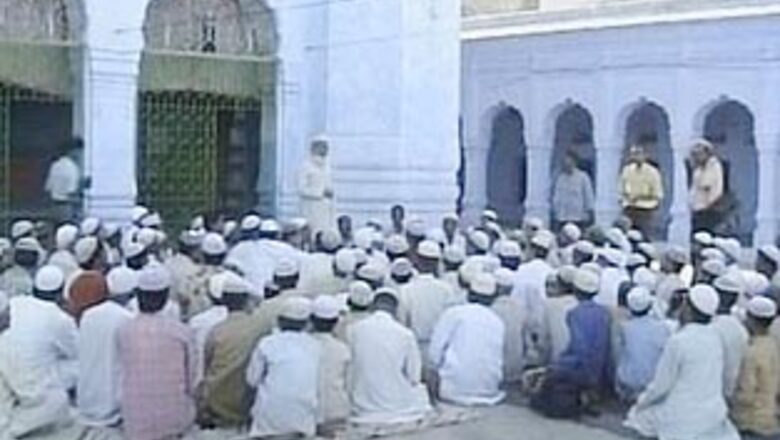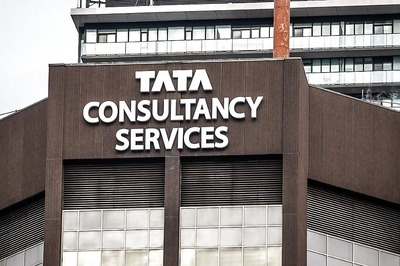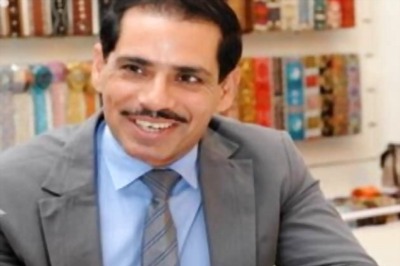
views
New Delhi: A seller of perfumes by profession, he has been emboldened by his surprise electoral wins in Assam in 2006. Maulana Badruddin Ajmal is now hoping to translate the millions of Muslim votes in the country into a significant victory for his party in the upcoming Lok Sabha polls.
Ajmal's Asom United Democratic Front (AUDF), which won 10 Assembly seats within six months of its birth, is eyeing the key high Muslim population states of Uttar Pradesh, Bihar, Maharashtra and Jharkhand besides Assam.
"Since independence, political parties have not delivered what people, especially Muslims, had expected from them," said Ajmal, 50, who is the AUDF President.
"The condition of Muslims is deplorable, they have voted and tried every party but nothing has changed. I am trying my best for the political empowerment of the community," Ajmal said.
He said contesting from these states would facilitate the AUDF to acquire the status of a national party. According to the 2001 census, Uttar Pradesh has an 18.5 per cent Muslim population, Bihar 16.5, Maharashtra 10.6 and Jharkhand 13.8.
Ajmal, who has made a fortune by exporting ittar, or traditional Indian perfume, primarily to the Middle East, said: "Like the way we worked hard in Assam, we will do here."
He said his party would also work for other marginalised sections. "Along with Muslims, we will work for the sections that have remained on the periphery after independence. The head of the party in a state can be a Hindu as well depending on the local conditions," he added.
Currently, two of the 10 legislators of AUDF in Assam are Hindus.
Zafarul Islam Khan, editor of Milli Gazette, said: "From what I gather through discussions with the party leadership, I can say though the core group and top leadership is Muslim, they would be working for other communities as well."
The party is, however, banking mainly on Muslims, who form 13.4 per cent of India's total population as per the 2001 Census.
Muslims comprise half the population in 18 of the 593 districts in the country and have decisive votes in 80 of 543 Lok Sabha seats. Their population is 30.9 per cent in Assam, where the AUDF put up a stunning show three years ago.
Ajmal, who studied at the Dar-ul-Uloom seminary in Deoband town of Uttar Pradesh, said since the outfit was not a registered national party it would field candidates under the banner of the Uttar Pradesh-UDF, Bihar-UDF in Bihar and so on.
Ajmal said his party would not have any pre-poll alliances but could tie up with secular parties after the elections expected in April-May.
Political analysts are, however, sceptical and see it only as a pressure group. And then two such parties, All-India Majlis-E-Ittehadul Muslimmen in Andhra Pradesh and Indian Union Muslim League in Kerala, have not been able to cross the territorial boundaries of their regions.
Amir Ali, associate professor of political science at Jawaharlal Nehru University (JNU), said: "Such parties mainly try to play on rhetoric, but the voter has become intelligent and does tactical voting. The Muslim voter's primary concern is to keep the Bharatiya Janata Party (BJP) out of power."
Ali also said that such parties were likely to be branded communal and would end up helping the BJP to consolidate its vote bank.
Political scientist Sudha Pai said: "It is too early to say, but if they do sustained work among the community then they might develop their vote base. Also, another factor that would matter would be the alliances that the party forms in different states."
She said the party had done well in Assam and might have some impact in regions like eastern Uttar Pradesh if they take up issues like terrorism.
Pai said: "If they develop a mass following, they will definitely impact parties like the Samajwadi Party and Congress, for whom Muslims have traditionally voted but have apprehensions about now."


















Comments
0 comment